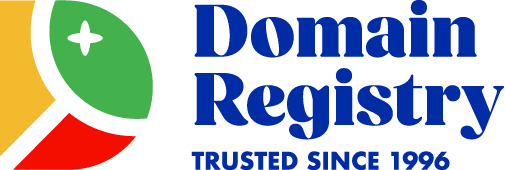Categories for Dot Talk: Our Domains Blog
https://www.domainregistry.com/blog/handling-unavailable-domain/
With over a billion websites in existence, the remaining pool of unique and snappy domain names is a bit shallow. And that goes double for .com sites. Newcomers to the domains scene are often understandably frustrated to find their first (and maybe even second and third) choice is already taken. But just because a domain name is already owned by...
https://www.domainregistry.com/blog/essential-domain-terms/
Whether you’re new to the world of web domains or just want a quick guide, knowing the right terminology can help you navigate the domain registration process like a pro. If you aim to establish your online presence, protect your brand, or simply learn the related lingo, you’ve come to the right spot. We’ve compiled and simplified some essential domain...
https://www.domainregistry.com/blog/tips-for-choosing-a-domain/
Your domain name for your brand’s website is both your address and your identity on the web. This is true for photographers, big tech companies, restaurants, and fashion bloggers. But with so many domain names already registered (over 300 million!), singling out the perfect name can be a challenge. If your goal is for your website to be easy to...
https://www.domainregistry.com/blog/blog-domain-monitoring/
Monitoring both internal and external domain operations and events is no small feat. A domain owner has to watch their expiry dates on domain name registrations and SSL certificates as well as keep an eye out for fraudulent DNS activity—and those examples barely scratch the surface. Before we dig deeper, there’s a way to easily oversee all of these logistical...
https://www.domainregistry.com/blog/domain-locking/
Once you’ve claimed and set up your domain name, domain locking will play a key role in keeping it safe. As a default security measure provided by your registrar, domain locking prevents unauthorized attempts to modify or transfer your domain. Here’s what you should know about domain locking—and what to expect from your registrar. What is domain locking (and how...
https://www.domainregistry.com/blog/form-llc-or-register-domain-first/
Deciding whether to register a domain or form an LLC first can feel like a chicken-and-egg situation. In reality, it’s just a matter of balancing competing priorities. You need to secure a legal business name with the state (where options may be limited) and snag a domain name that’s short, easy to remember, and on brand for your business (also...
https://www.domainregistry.com/blog/domain-renewal-scam/
You registered your domain name about a year ago, and it’s been smooth sailing. Your website is coming along. Then you get an official-looking letter in the mail, reminding you to renew your domain name before it expires—or risk losing it to someone else. Yikes! It looks like an official bill and you should pay it right? Nope. The IRS...
https://www.domainregistry.com/blog/register-multiple-domains/
Registering multiple domains will create more opportunities for people to find your website (even if you only have one). You can redirect each domain name you register to your main website, which will help you protect your brand, target local markets, and capture anyone who misspells or mistypes your domain name in the address bar. Here, we’ll explore a few...
https://www.domainregistry.com/blog/cybersquatting/
Have you found out your company name or personal brand has a domain registered by someone who isn’t you? Are they asking you to buy it from them at a ridiculous price? You may be a victim of cybersquatting. Cybersquatting, also called domain squatting, is when someone registers a domain in bad faith to profit from their trademark, business name,...
https://www.domainregistry.com/blog/what-is-domain-privacy/
When you register a domain, you’ll need to provide your personal contact information—including your name, address, phone number and email—to your domain registrar. Depending on your privacy settings, your registrar may then publish your information to the WHOIS database. WHOIS (short for “Who is responsible for this domain name?”) is a public domains directory that identifies who owns a domain,...
